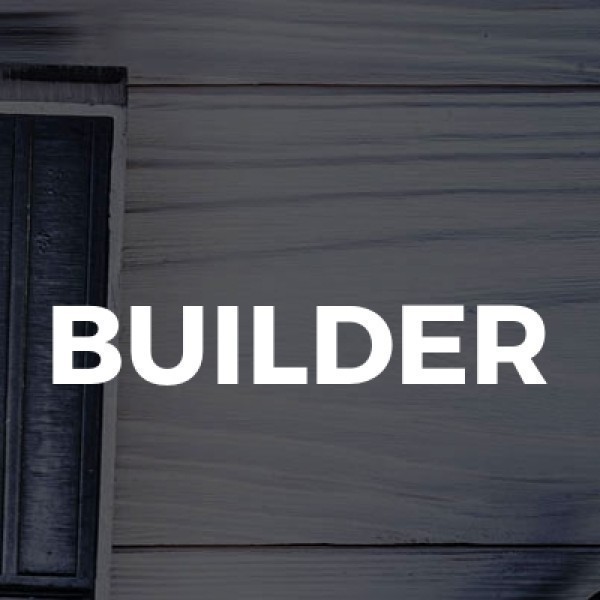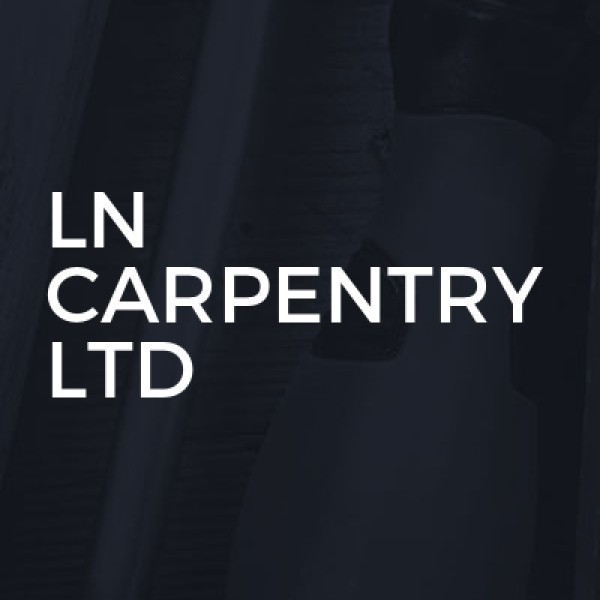Extension Builders in Kingswood
Welcome to EMKA Building Contractors Ltd, your premier choice for builders and renovation exp... read more »
P31 Carpentry Ltd is a premier carpentry and building company located in Hillfields, dedicated to serving the bustling c... read more »
Welcome to Search And Find Property Services Ltd, your go-to experts for all building and renovation needs in Easton and the greater Bris... read more »
MRP Construction: Premier Builders in Hanham, Gloucestershire
Welcome to MRP Construction, the leading builders... read more »
Welcome to Valuto Builders, your trusted partner for all your building needs in Fishponds and across Bristol. As experienced builders, we... read more »
Welcome to ATP Construction Southwest Ltd, your premier choice for expert construction services in the bustling city of Bristol. As a tru... read more »
Welcome to Site-Lines Installations, your go-to experts for all building and renovation needs in Somerset. Proudly based in Northend, we... read more »
Welcome to Severn Property Solutions Ltd, your trusted partner for all building and renovation needs in the heart of Bristolread more »
Welcome to Greenslade & Sons Limited, your go-to experts for all your building needs in Hartcliffe and the greater Bristol area. As a wel... read more »
Atley Construction Ltd, a family-run business based in the charming town of Tetbury, is your go-to solution for all cons... read more »
Welcome to Busy Builders Construction, your go-to experts for all your construction and renovation needs in Woodhouse Down and across Glo... read more »
Wheelers Building Solutions is your go-to expert for all building needs in Lower Knowle and the wider Bristol area. Spec... read more »
Farrell Building Developments Ltd, nestled in the heart of Winterbourne Down, is your go-to solution fo... read more »
GENERATIONS: Your Trusted Tradespeople in Somerset
Welcome to GENERATIONS, a reputable Britten's-based business... read more »
Cottle Construction is a premier choice for those seeking expert building services in Yate and throughout Gloucestershir... read more »
SJE Design & Build Ltd is a distinguished family-run business nestled in the bustling area of Eastville, proudly serving... read more »
Welcome to 4 Corners C&D LLP, your premier choice for builders, extension builders, driveway contractors, and renovation experts in St Pa... read more »
Welcome to D H Carpentry And General Building LTD, your premier choice for builders, extension builders, carpenters, kitchen installation... read more »
Welcome to LN Carpentry Ltd, your trusted partner for all your carpentry and building needs in Huntley and throughout Gloucestershire. As... read more »
Welcome to PVL Services Ltd, your premier choice for tradespeople in Andoversford, Gloucestershire. With over 22 years of experience, we... read more »
Search Extension Builders in places nearby
Understanding the Role of Extension Builders in Kingswood
When it comes to enhancing your home, extension builders in Kingswood play a pivotal role. These professionals are skilled in transforming your living space, adding value, and improving functionality. Whether you're looking to add a new room, expand your kitchen, or create a home office, extension builders have the expertise to bring your vision to life.
Why Choose Extension Builders in Kingswood?
Kingswood, a charming suburb known for its picturesque landscapes and vibrant community, is home to some of the most skilled extension builders. Choosing local builders offers several advantages. They understand the area's architectural styles, local regulations, and climate considerations, ensuring your extension is both aesthetically pleasing and compliant with local codes.
Local Knowledge and Expertise
Extension builders in Kingswood possess in-depth knowledge of the local area. This expertise allows them to recommend designs and materials that complement the existing structures and environment. Their familiarity with local suppliers can also lead to cost savings and quicker project completion.
Compliance with Local Regulations
Building regulations can be complex, but local builders are well-versed in the requirements specific to Kingswood. They ensure that all necessary permits are obtained and that your extension meets safety and environmental standards, providing peace of mind throughout the construction process.
Types of Home Extensions
Home extensions come in various forms, each serving different purposes and catering to diverse needs. Understanding the types of extensions available can help you make an informed decision about what suits your home best.
Single-Storey Extensions
Single-storey extensions are a popular choice for homeowners looking to expand their ground floor. These extensions can be used to enlarge kitchens, living rooms, or dining areas, providing additional space for family gatherings and entertaining guests.
Double-Storey Extensions
For those needing more space, double-storey extensions offer a solution by adding rooms on both the ground and first floors. This type of extension is ideal for growing families or those who require additional bedrooms or bathrooms.
Wrap-Around Extensions
Wrap-around extensions combine side and rear extensions, creating a larger, more versatile space. This option is perfect for homeowners who want to maximise their living area without compromising their garden space.
Conservatories and Orangeries
Conservatories and orangeries provide a unique way to enjoy natural light while adding elegance to your home. These glass structures can be used as sunrooms, dining areas, or even home offices, offering a seamless connection between indoor and outdoor spaces.
The Process of Building an Extension
Building an extension is a significant undertaking that involves several stages. Understanding the process can help you prepare and ensure a smooth experience from start to finish.
Initial Consultation and Planning
The first step involves meeting with your chosen extension builder to discuss your ideas and requirements. During this consultation, the builder will assess your property, offer design suggestions, and provide an initial cost estimate.
Design and Approval
Once the initial plans are agreed upon, the builder will create detailed designs and submit them for approval. This stage may involve obtaining planning permission and ensuring compliance with building regulations.
Construction Phase
With approvals in place, construction begins. This phase involves site preparation, foundation work, and building the structure. Throughout this process, the builder will keep you informed of progress and address any concerns that arise.
Finishing Touches
After the main construction is complete, attention turns to the finishing touches. This includes installing fixtures, fittings, and finalising the interior design. Your builder will ensure that every detail meets your expectations.
Budgeting for Your Home Extension
Budgeting is a crucial aspect of any home extension project. Understanding the costs involved and planning accordingly can help you avoid financial surprises and ensure your project stays on track.
Factors Influencing Costs
Several factors can influence the cost of your extension, including the size and complexity of the project, materials used, and labour charges. It's essential to discuss these factors with your builder to get a clear understanding of the overall budget.
Setting a Realistic Budget
Setting a realistic budget involves considering both the initial construction costs and any additional expenses, such as landscaping or interior design. It's advisable to include a contingency fund to cover unexpected costs that may arise during the project.
Financing Options
If your budget is tight, there are several financing options available, such as home improvement loans or remortgaging. Discussing these options with a financial advisor can help you determine the best approach for funding your extension.
Choosing the Right Extension Builder
Selecting the right builder is crucial to the success of your extension project. Here are some tips to help you make an informed choice.
Research and Recommendations
Start by researching local builders and seeking recommendations from friends or family who have undertaken similar projects. Online reviews and testimonials can also provide valuable insights into a builder's reputation and reliability.
Checking Credentials
Ensure that your chosen builder is licensed, insured, and has a proven track record of successful projects. Checking credentials and asking for references can help you gauge their expertise and professionalism.
Communication and Compatibility
Effective communication is key to a successful project. Choose a builder who listens to your ideas, provides clear explanations, and is responsive to your queries. Compatibility in working style can also contribute to a positive experience.
Frequently Asked Questions
- How long does it take to build a home extension? The duration varies depending on the size and complexity of the project, but most extensions take between three to six months to complete.
- Do I need planning permission for an extension? Planning permission requirements depend on the size and location of your extension. Your builder can advise you on whether permission is needed.
- Can I live in my home during the extension work? In most cases, you can remain in your home during construction, although there may be some disruption. Discuss this with your builder to plan accordingly.
- What materials are best for home extensions? The choice of materials depends on your budget, design preferences, and the existing structure. Common materials include brick, timber, and glass.
- How can I ensure my extension is energy-efficient? Incorporating energy-efficient features, such as insulation, double glazing, and energy-efficient lighting, can help reduce energy consumption and costs.
- What should I do if I encounter problems during construction? Open communication with your builder is essential. Address any concerns promptly to ensure they are resolved quickly and effectively.
In conclusion, extension builders in Kingswood offer a wealth of expertise and local knowledge to help you transform your home. By understanding the process, budgeting effectively, and choosing the right builder, you can ensure a successful and stress-free extension project that enhances your living space and adds value to your property.
























